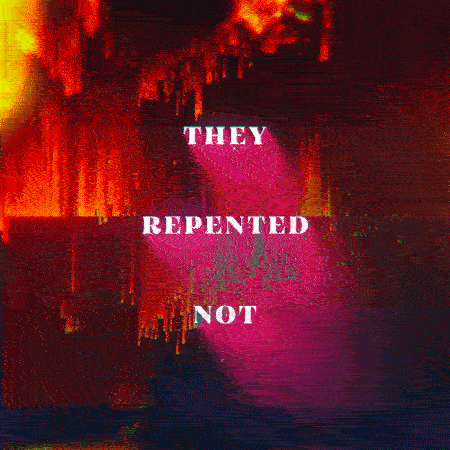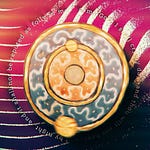They were separated, and repented not: they tempted me, they scoffed at me with scorn: they gnashed upon me with their teeth. (Psalm 34:16 DR)
In the story of the Prodigal Son, the younger son demands of his father his half of the inheritance, and—upon receiving it—promptly leaves and even more promptly spends it all on wantonness and debauchery. He is reduced in poverty to the extremity of slinging pig slop, and finally realizes how foolish he has been:
And returning to himself, he said: How many hired servants in my father’s house abound with bread, and I here perish with hunger? (Luke 15:17 DR)
This phrase of returning to himself paints an interesting picture of a person split in two, so to speak, as if his desires and actions lead him away from his true self, such that he eventually returns to that self. This is the rational part of him which sees his reality and the evil that he has done, which was occluded in the midst of the darkening of his intellect due to his sins. One might say that his sin separated himself from himself, and it was only through repentance that he was brought back to himself.
The Psalmist continues to speak of those who persecute him, delving into the recesses of their souls to perceive their motivations and deceits. The first section of this passage—they were separated, and repented not—is connected in the Septuagint to the previous verse, but in the Vulgate begins a new verse.
He says that they were separated or scattered, which Cassiodorus sees as relating to the scattering of Jesus’ enemies following His death:
He relates what happened to the Jews after they abandoned their wicked rashness. They were indeed scattered when at the Lord’s passion the sun suffered eclipse, the earth shook, the veil of the temple was rent. Yet though these mighty miracles were revealed to them, they were not converted because of the effect of their obduracy. (Cassiodorus, Explanation of the Psalms, 34, 16, Ancient Christian Writers)
This interpretation is followed by St. Robert Bellarmine:
“They were separated.” The conventicle of those who came together to injure, to scourge me, “was separated,” scattered by the breath of God’s will, but still “they repented not,” as they should have done; on the contrary, “they tempted me, they scoffed at me with scorn, they gnashed upon me with their teeth.” (St. Robert Bellarmine, A Commentary on the Book of the Psalms, 34, 16.)
In this manner this opening phrase anticipates the outcome of what follows; that is, they will scoff and insult our Lord on the cross, but even after His death and the miracles which accompany it, they will not repent. A similar prophecy may relate to the destruction of Jerusalem in which the scattering will be complete:
And when he drew near, seeing the city, he wept over it, saying: If thou also hadst known, and that in this thy day, the things that are to thy peace; but now they are hidden from thy eyes. For the days shall come upon thee, and thy enemies shall cast a trench about thee, and compass thee round, and straiten thee on every side, and beat thee flat to the ground, and thy children who are in thee: and they shall not leave in thee a stone upon a stone: because thou hast not known the time of thy visitation. (Luke 19:41-44 DR)
St. Augustine reads this within the context of the Donatist controversy, and thus those who are separated are those who are outside of the Church; that is, they have been cut off or asunder from the Body of Christ. The Old Latin version that St. Augustine uses has discissi sunt, nec compuncti sunt, meaning they have been cloven asunder, and have not been pierced through. The term discissi literally means to cut in two, and in this sense relates to those who have separated themselves from the Church.
There is the sense in which they are corporately cut in two in their relation to the Church, but also in terms of cut in two within themselves, like the prodigal son who eventually has to return to himself in repentance. The Old Latin here doubles up on the term sunt—they are—whereas the Vulgate only uses it after dissipati, allowing it to be inferred for the following use of compuncti. The doubling here may be for emphasis to further draw out the contrast: even though they are cut in two, they do not feel the sting of this so as to return to themselves. Compuncti—which the Douay-Rheims translates as repent—literally means to be pierced or pricked or goaded, with the figurative idea of the conscience being pricked or poked so as to be brought to repentance. We sometimes speak of being cut to the heart when we have a realization of a wrong we have committed, which is how the crowds who heard St. Peter’s sermon at Pentecost are said to have reacted:
Now when they had heard these things, they had compunction in their heart, and said to Peter, and to the rest of the apostles: What shall we do, men and brethren? (Acts 2:37 DR)
The Vulgate here has compuncti sunt corde, which parallels nicely with what the Psalmist speaks of. They had compunction in their heart, they were cut to the heart and turned to the Lord in repentance, which is the difference between compuncti sunt corde (they had compunction in heart) and nec compuncti sunt (they repented not).
St. Augustine comments on how the pleasantness of sin can hide the pricks of conscience which might lead us to repentance. Taking the figure of the bramble bush, which starts off with soft branches and ends with sharp thorns, the compunction of heart in this life is meant to lead us to repentance, for that which comes after will be the barrenness of thorns:
What is the bramble? …At first it is an herb; and while it is an herb, soft and fair it is: but thereon there are nevertheless thorns to come forth. Now therefore sins are pleasant, and as it were they do not prick. An herb is the bramble; even now nevertheless there is a thorn. Before the bramble bringeth forth the thorns: is before that of miserable delights and pleasures the evident tortures come forth. Let them question themselves that love any object, and to it cannot attain; let them see if they are not racked with longing: and when they have attained to that which unlawfully they long for, let them mark if they are not racked with fear…
Then the thorns of that bramble, that is, all pains and piercings and tortures shall be brought forth. Such thorns as they shall suffer that are to say, These are they whom sometimes we had in derision: thorns of the piercing of repentance, but of one too late and without fruit like the barrenness of thorns. The repentance of this time is pain healing: repentance of that time is pain penal…
Now do so, now be pierced through, be there not in thee done that which hath been said of certain execrable men, They have been cloven asunder, and have not been pierced through. (St. Augustine, Expositions on the Psalms, 57, 20.)
The second half of this passage is therefore the state of the soul of those who reject repentance and instead cling to their wickedness and sin. Our Lord suffered on the cross for our sins and to bring us to penance, but by scoffing at Him they reject both their need for salvation and the price that was paid for them. This derision paid to the Head is also transferred to the Body, as the Church and her members suffer this same affront throughout the ages:
As it was to the Head, so it is also to the Body. For as it was to the Lord on the Cross, so has it been to His Body in all that persecution which was made but now: nor even now cease the persecutions of the same. Wherever men find a Christian, they are wont to insult, to persecute, to deride him, to call him dull, senseless, of no spirit, of no knowledge. Do they what they will, Christ is in Heaven: do they what they will, He has honoured His punishment, already has He fixed His Cross in the foreheads of all; the ungodly is permitted to insult, to rage he is not permitted; but yet from that which the tongue utters, is understood what he bears in his heart: They gnashed upon Me with their teeth. (St. Augustine, Expositions on the Psalms, 34, Exposition 2, 8.)
The sign of the cross which St. Augustine mentions here thus becomes a sign of those who have returned to themselves in repentance and have been incorporated into His mystical Body; they are no longer separated but suffered compunction in heart so as to be healed.
This animation is mostly procedural, using a combination of Pixel Sorter Studio and Stretch applied to a base abstract image to drive the animation. I wanted the sense of a conflagration ultimately, and so I tried to make it as chaotic as I could.
Enjoy.
They were separated, and repented not: they tempted me, they scoffed at me with scorn: they gnashed upon me with their teeth.
(Psalm 34:16 DR)
View a higher quality version of this gif here:










